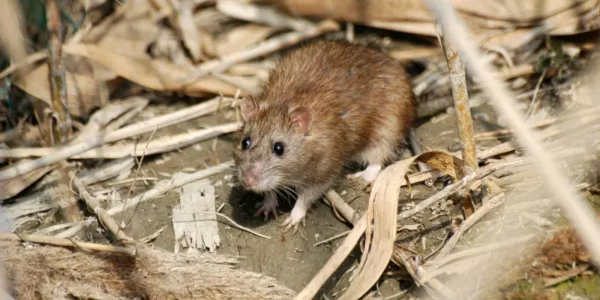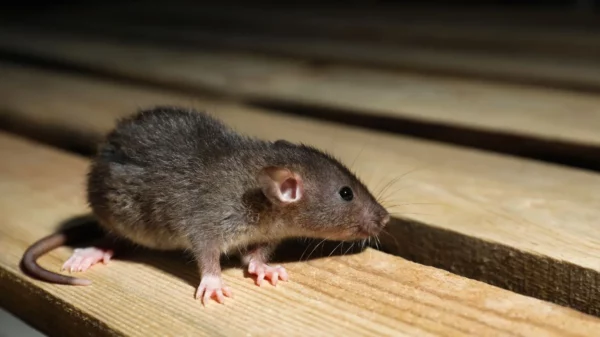Ipswich’s warm climate and urban environment make it an ideal breeding ground for rodents. Rats and mice thrive in residential areas, where they have access to food, water, and shelter. As nocturnal creatures, they often remain undetected until their population grows significantly. Homeowners frequently notice signs like gnawed wires, droppings, and scratching noises in walls and ceilings. Without intervention, a small rodent issue can quickly escalate into a full-blown infestation.
Rodents are not just a nuisance; they pose serious health and safety risks. They contaminate food, spread diseases, and cause structural damage by chewing through insulation, electrical wiring, and wooden structures. Taking proactive steps to prevent and eliminate rodents is crucial for maintaining a safe and healthy home environment. See how our pest control services in Ipswich help residents
Signs of a Rodent Infestation

Rodents are skilled at hiding, but they leave behind clear signs of their presence. If you suspect a rodent infestation in your Ipswich home, look out for these warning signals:
1. Droppings and Urine Stains
Rodent droppings are small, dark, and pellet-shaped, often resembling grains of rice. You’ll typically find them near food storage areas, under sinks, behind appliances, or along baseboards. The more droppings you see, the higher the level of infestation. Urine stains may appear as streaks or small puddles with a strong, musty smell. In severe cases, accumulated urine can cause discoloration on floors and walls.
2. Gnaw Marks and Damaged Belongings
Rats and mice gnaw constantly to prevent their teeth from overgrowing. They target wooden furniture, plastic containers, electrical wires, and even drywall. Fresh gnaw marks appear light-colored, while older ones darken over time. Damaged wiring increases the risk of electrical fires, making prompt rodent control essential. If you notice frayed cords or bite marks on household items, rodents may be nesting nearby.
3. Scratching Noises
Rodents are nocturnal and highly active at night. You may hear scratching, scurrying, or squeaking sounds coming from walls, ceilings, attics, or under floorboards. These noises often indicate rodents moving in search of food or nesting materials. Louder sounds could suggest the presence of larger rodents, such as rats, while lighter, quicker movements may indicate mice.
4. Nesting Materials
Mice and rats build nests using shredded paper, fabric, insulation, dried grass, and other soft materials. They prefer warm, hidden areas like attics, behind appliances, inside wall cavities, or underneath cabinets. If you find small piles of torn materials or clumped insulation in obscure corners, it’s a strong sign of rodent nesting activity. Larger nests may indicate a well-established infestation.
5. Unusual Pet Behaviour
Pets often sense rodents before humans do. If your dog or cat suddenly becomes fixated on specific spots—such as a cupboard, pantry, or wall void—they may be reacting to rodent movements. Signs include barking, scratching, sniffing excessively, or attempting to reach under furniture or appliances. Some pets may also display heightened alertness or agitation when rodents are present.
How to Get Rid of Rats in Ipswich Homes
Eliminating rodents requires a combination of prevention, exclusion, and professional treatment. Follow these steps to effectively tackle an infestation and prevent future problems.
1. Seal Entry Points
Rats and mice can squeeze through gaps as small as a coin, making it easy for them to enter homes unnoticed. Inspect your home thoroughly for cracks in walls, gaps around doors and windows, and openings around utility pipes. Seal these entry points with durable materials like steel wool, caulk, or metal mesh to prevent rodents from gaining access. Regularly checking and reinforcing these barriers can help keep your home rodent-free.
- Use steel wool or caulk to seal small holes and cracks in walls.
- Install door sweeps on exterior doors to prevent rodents from slipping inside.
- Cover vents and chimneys with mesh screens to keep pests out.
2. Remove Food and Water Sources
Rodents are attracted to easily accessible food and water, making kitchens, pantries, and garbage areas prime targets for infestations. Even small crumbs or minor leaks can provide enough sustenance for these pests to thrive. Eliminating these sources makes your home less appealing to them and reduces the likelihood of an infestation. Regularly cleaning up spills, sealing food in airtight containers, and fixing any water leaks are essential steps in keeping rodents at bay.
- Store food in airtight containers to prevent access.
- Keep kitchen surfaces clean and free of crumbs or spills.
- Fix leaking pipes and taps to reduce moisture.
- Dispose of rubbish regularly and use tightly sealed bins.
3. Use Rodent Traps
Traps are a common and effective method for catching and removing rodents, helping to control their population in homes and businesses. The type of trap used depends on factors such as the severity of the infestation, the size of the affected area, and whether humane removal is preferred. Some traps work instantly to eliminate rodents, while others are designed for live capture and relocation. Proper trap placement, bait selection, and regular monitoring are essential for maximizing effectiveness and ensuring a successful rodent control strategy.
- Snap traps provide a quick and humane way to kill rodents.
- Live traps allow for humane catch-and-release if relocation is an option.
- Glue traps, though effective, may not be the most humane choice.
4. Apply Rodent Repellents
Certain scents and substances can deter rodents from nesting in your home. Strong odors like peppermint oil, ammonia, and mothballs create an unwelcoming environment for rodents, making them less likely to settle. Some homeowners also use vinegar, cloves, or cayenne pepper to discourage rodent activity. Sprinkling these substances in rodent-prone areas or soaking cotton balls in essential oils can enhance their effectiveness. While natural repellents can help, they work best as part of a comprehensive rodent control strategy.
- Peppermint oil, ammonia, and mothballs can help repel rodents when placed in affected areas.
- Ultrasonic rodent repellents emit high-frequency sounds that discourage rats and mice from settling.
5. Call Ipswich Rodent Control Experts
While DIY methods may work for minor issues, a professional pest control service is the most reliable way to eliminate rodents completely. Experts use advanced techniques, such as baiting and exclusion methods, to ensure your home remains rodent-free long-term.
Why Professional Rodent Control is Essential

Rodents breed quickly, and a single pair can turn into dozens within a matter of months. Leaving an infestation untreated increases the risk of damage to your home and health concerns for your family. Professional pest control services provide a thorough and effective solution by:
- Conducting a detailed inspection to locate nesting areas and entry points.
- Using safe and targeted treatments to eliminate rodents.
- Implementing long-term prevention strategies to keep your home pest-free.
Frequently Asked Questions
1. Are pest control treatments safe for pets and children?
Yes, professional pest control companies use eco-friendly pest control methods that are safe for families, pets, and the environment. Technicians take precautions to minimise exposure and ensure the safety of your household.
2. How often should pest control treatments be done?
The frequency of pest control treatments depends on the severity of the infestation and the type of pests involved. General pest control services typically recommend quarterly treatments to maintain a pest-free home.
3. What should I do before a pest control treatment?
Pre-treatment pest control advice includes removing food items, covering pet dishes, and keeping children and pets away from treated areas for the recommended duration.
4. Is pest control required for rental properties in Ipswich?
End-of-lease pest control may be required under tenancy agreement responsibilities. Renters should check their lease agreements to determine if pest treatments are necessary before moving out.
5. Do pest control companies offer warranties on treatments?
Many pest control providers offer warranties on pest control treatments, ensuring that if pests return within a specified period, follow-up services will be provided at no extra cost.
6. Can pests be more active in certain seasons?
Yes, seasonal patterns of pest activity influence infestations. Rodents seek shelter indoors during cooler months, while other pests become more active in warmer seasons.
Protect Your Home from Rodents Year-Round
Ipswich’s rodent problem can be challenging to manage without expert help. By identifying the signs of an infestation early, sealing entry points, and maintaining good hygiene, you can reduce the likelihood of a rodent invasion. If you suspect rats or mice in your home, don’t wait for the problem to worsen. Contact a professional pest control service for a thorough inspection and long-term solutions.

